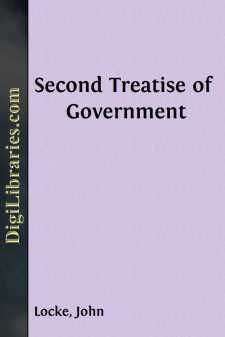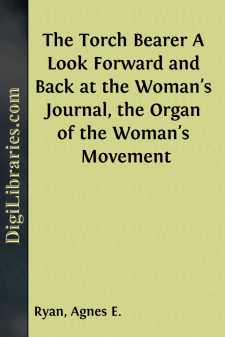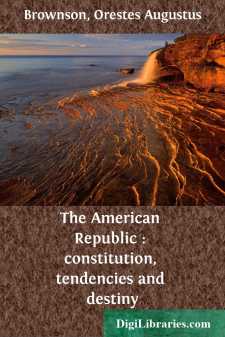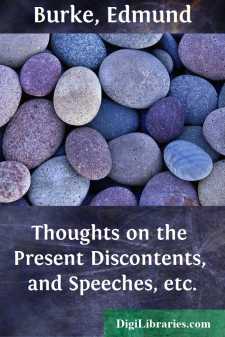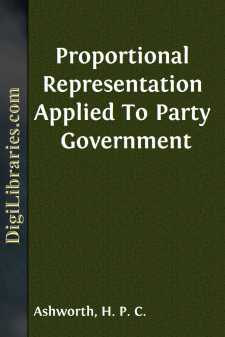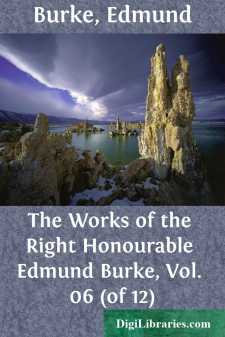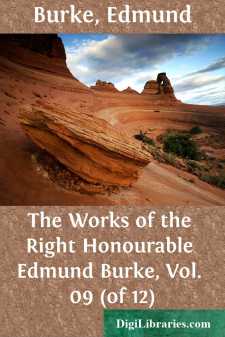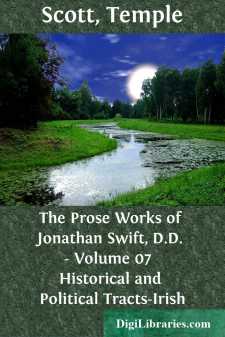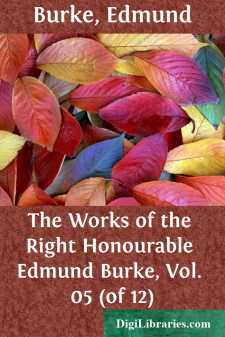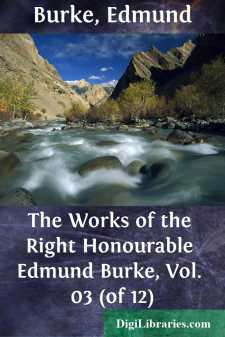Political Science
- Conspiracy & Scandal Investigations 1
- Constitutions 7
- Economic Conditions 10
- General
- Government 6
- History & Theory 132
- Peace 1
General Books
Sort by:
by:
John Locke
PREFACE Reader, thou hast here the beginning and end of a discourse concerning government; what fate has otherwise disposed of the papers that should have filled up the middle, and were more than all the rest, it is not worth while to tell thee. These, which remain, I hope are sufficient to establish the throne of our great restorer, our present King William; to make good his title, in the consent of...
more...
by:
Agnes E. Ryan
=The Torch Bearer= So wonderful are the days in which we are living and so rapidly is the canvas being crowded with the record of achievement in the woman's movement that it is time for readers of the Woman's Journal and for all suffragists to know somewhat intimately and as never before what goes on in the four little rooms in Boston where the organ of the suffrage movement is...
more...
PREFACE. In the volume which, with much diffidence, is here offered to the public, I have given, as far as I have considered it worth giving, my whole thought in a connected form on the nature, necessity, extent, authority, origin, ground, and constitution of government, and the unity, nationality, constitution, tendencies, and destiny of the American Republic. Many of the points treated have been from...
more...
by:
Edmund Burke
INTRODUCTION Edmund Burke was born at Dublin on the first of January, 1730. His father was an attorney, who had fifteen children, of whom all but four died in their youth. Edmund, the second son, being of delicate health in his childhood, was taught at home and at his grandfather’s house in the country before he was sent with his two brothers Garrett and Richard to a school at Ballitore, under...
more...
CHAPTER I. THE TRUE PRINCIPLES OF POLITICAL REPRESENTATION. Old establishments, like the British Constitution, said Edmund Burke, "are not often constructed after any theory; theories are rather drawn from them." In setting out on an endeavour to understand the principles underlying political representation, the saying expresses exactly the course which should be followed. The inquiry is the...
more...
by:
Edmund Burke
FOURTH LETTER ON THE PROPOSALS FOR PEACE WITH THE REGICIDE DIRECTORY OF FRANCE. ADDRESSED TO THE EARL FITZWILLIAM. 1795-7. Letter from the Right Honorable the Lord Auckland to the Lord Bishop of Rochester. EDEN FARM, KENT, July 18th, 1812. My dear Lord,—Mr. Burke's fourth letter to Lord Fitzwilliam is personally interesting to me: I have perused it with a respectful attention. When I...
more...
by:
Edmund Burke
VII.—CONTRACTS. That the Court of Directors of the East India Company had laid down the following fundamental rules for the conduct of such of the Company's business in Bengal as could be performed by contract, and had repeatedly and strictly ordered the Governor and Council of Port William to observe those rules, viz.: That all contracts should be publicly advertised, and the most reasonable...
more...
by:
Temple Scott
SOME PRESS OPINIONS "An adequate edition of Swift—the whole of Swift, and nothing but Swift—has long been one of the pressing needs of students of English literature. Mr. Temple Scott, who is preparing the new edition of Swift's Prose Works, has begun well, his first volume is marked by care and knowledge. He has scrupulously collated his texts with the first or the best early editions,...
more...
by:
Edmund Burke
LETTER TO HIS GRACE THE DUKE OF PORTLAND. My dear Lord,—The paper which I take the liberty of sending to your Grace was, for the greater part, written during the last session. A few days after the prorogation some few observations were added. I was, however, resolved to let it lie by me for a considerable time, that, on viewing the matter at a proper distance, and when the sharpness of recent...
more...
by:
Edmund Burke
SPEECH. The times we live in, Mr. Speaker, have been distinguished by extraordinary events. Habituated, however, as we are, to uncommon combinations of men and of affairs, I believe nobody recollects anything more surprising than the spectacle of this day. The right honorable gentleman whose conduct is now in question formerly stood forth in this House, the prosecutor of the worthy baronet who spoke...
more...


